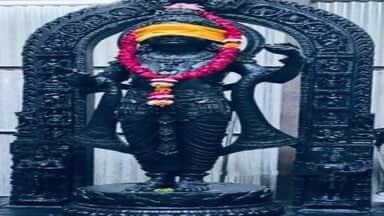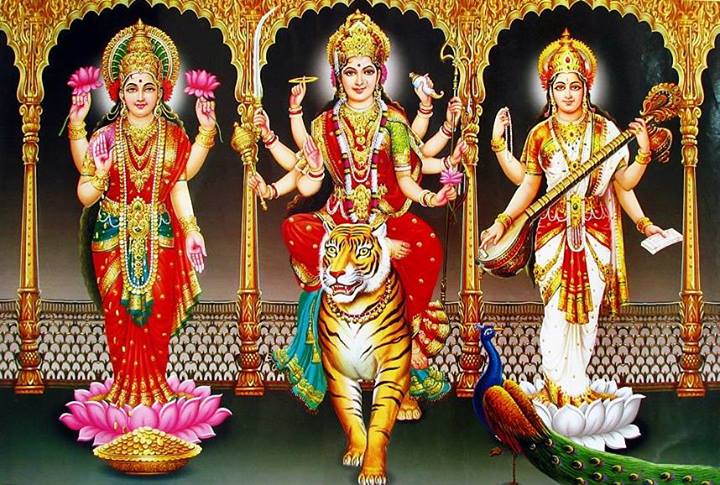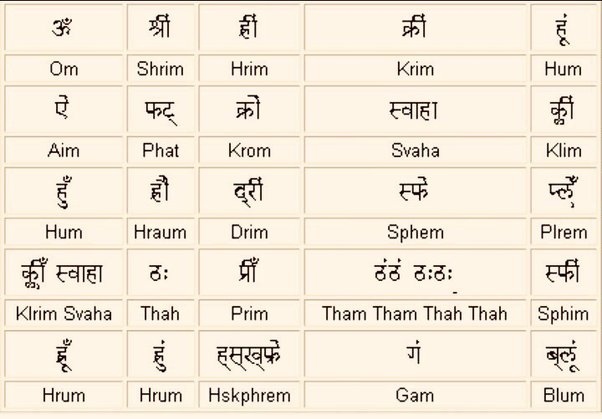I have posted a few articles on Sraddha,Rites for the departed , including text of Mantras ans Mahalaya Paksha Procedure.
I shall be posting a series of articles in detail on various aspects of Sraddha.
Here are the types of Sraddha to be performed.
They are one hundred sixteen in number.
Sraddha the ceremony performed for the ancestors is of different types.
Stricly speaking Sraddha has to be performed daily.
Definition of Sraddha.
देशे काले च पात्रे च श्रद्धया विधिना च यत् ।
पितृनुद्दिश्य विप्रेभ्यो दत्तं श्राद्धमुदाहृत् ।। – ब्रह्मपुराण
Meaning: The offerings (food etc.) made to the Brahmin (priests) with the intension being received by the deceased ancestors, after taking into account the aptness of country, time period and place and with complete faith and abiding by all the rules is known as Shraddha.
C: Associated words
Shraddhattva Pinda, Pitru Puja (ritualistic worship of deceased ancestors), Pitru Yagna (sacrificial fires performed for deceased ancestors).
Hindu Dharma does not give any chance to anyone to say that the shraddha was not performed due to non-feasibility in a particular period!
Normally every year Shraddha should be performed on the date of death of the person (as per the Hindu calendar and not as per the English calendar.) If the date is not known and only the month is known, then in that case the shraddha can be performed on the no moon night of that month.
If both, the date as well as the month is unknown then the shraddha can be performed on the no moon night of the Hindu calendar month of Magh or Margashirsha.
If the definite date of death is not known then the shraddha can be performed on the date when the news of the death was received.
Shraddha for deceased ancestors’ souls should be performed everyday and it can be achieved just by offering water (tarpan) to them.
If it is impossible to perform Shraddha daily, then Darsha Shraddha should be performed. Darsha means no moon night. Therefore Darsha Shraddha is t is performed on every New Moon.
If it is not possible to perform Darsha Shraddha every month, one should at least perform it on the no moon night of Hindu calendar months of Chaitra, Bhadrapad and Ashwin months.
If it is not possible even to perform Darsha Shraddha on no moon nights of Chaitra, Bhadrapad and Ashwin, then at least the ritual of Mahalaya should be performed in the Pitru fortnight of the month of Bhadrapad. If this too is impossible thenShraddha should be performed on the no moon night of the month of Bhadrapad (sarva pitri amavasya) .
Types of Sraddha.
Matsya Puran mentions ‘नित्यं नैमित्तिकं काम्यं त्रिविध श्राद्ध मुख्यते ।’, meaning, primarily there are three types ofShraddha – one performed daily, periodically and with purpose (Kamya). In addition to these, Yamasmruti definesNandi Shraddha and Parvan Shraddha as additional main types.
Daily Shraddha
The ritual of Shraddha performed daily is known as Daily Shraddha. This Shraddha can be performed just by offering water or sesame seeds to deceased ancestors.
Periodic Shraddha
The shraddha performed for deceased ancestors with a single objective and other such types fall under periodic Shraddha.
Purpose oriented (Kamya) Shraddha
Shraddha performed for achieving a specific objective is termed as purpose oriented (Kamya)Shraddha.
From the point of view of deriving fruitful result, if the Shraddha is performed on a specific day, date (as per Hindu calendar) and taking into consideration the position of stars (nakshatra), then the desired result is achieved.
The details.
Day and the derived result of the Shraddha
Date (as per Hindu calendar) and the derived result of the Shraddha
| Date of performingShraddha | Result derived from the Shraddha |
| First day in Hindu Lunar fortnight | Gaining a good fowl and being able to give birth to a healthy baby boy. |
| Second day in Hindu Lunar fortnight | Conceiving a baby girl. |
| Third day in Hindu Lunar fortnight | Acquiring a horse, acquiring fame |
| Fourth day in Hindu Lunar fortnight | Acquiring a lot of inferior animals |
| Fifth day in Hindu Lunar fortnight | Having a lot of good looking male children |
| Sixth day in Hindu Lunar fortnight | Conceiving bright male child, getting success in gambling. |
| Seventh day in Hindu Lunar fortnight | Acquiring a farm or land |
| Eighth day in Hindu Lunar fortnight | Obtaining success in business |
| Ninth day in Hindu Lunar fortnight | Acquiring animals like horses |
| Tenth day in Hindu Lunar fortnight | Expansion of cattle, acquiring animals with two humps |
| Eleventh day in Hindu Lunar fortnight | Acquiring utensils, clothes and a scholar male child. |
| Twelfth day in Hindu Lunar fortnight | Acquiring gold, silver etc. |
| Thirteenth day in Hindu Lunar fortnight | Gaining superiority within the community |
| Fourteenth day in Hindu Lunar fortnight | The persons, who have died due to the stroke of a weapon or on a battlefield, get momentum to attain a higher sub-plane. Gaining good citizens. |
| Full moon / no moon night | Fulfillment of all wishes |
Note 1: Except full moon night, all other dates that belong to the dark fortnight and corresponding dates in dark fortnight of the month of Bhadrapad, bestow special benefit.
1. Bhimashtami Shraddha: If one is not able to conceive or is facing problems of abortion, then for the well being of the fetus, Shraddha is performed or offering of water is made to Bhishmacharya, on the eighth day of the bright fortnight (Bhimashtami) in the Hindu calendar month of Magh.
3. Position of stars and the derived result of the Shraddha
| Position of star while performing Shraddha | Result derived from the Shraddha |
| Kruttika | Acquiring a heavenly abode for oneself and ones son. |
| Rohini | Conceiving male child |
| Mruga | Acquiring radiance of Brahman (Brahmatej) |
| Aardra | Providing momentum to the soul of an evildoer, action transformed into supernatural power. |
| Punarvasu | Obtaining wealth or land |
| Pushya | Improvement in strength |
| Ashlesha | Conceiving a male child with brave character, fulfillment of a wish |
| Magha | Gaining superiority within the community, a long married life |
| Purva | Good luck, conceiving a male child, elimination of sin |
| Uttara | Good luck, conceiving a male child, elimination of sin |
| Hasta | Fulfillment of a wish, gaining superiority within the community |
| Chitra | Conceiving a handsome male child, conceiving ample male children |
| Swati | Earning profit in business, earning success. |
| Vishakha | Conceiving ample male children, acquiring gold |
| Anuradha | Acquiring a kingdom (attaining position of minister etc), acquiring friends |
| Jyeshtha | Acquiring superiority, authority, wealth and self-confidence, acquiring a kingdom |
| Mula | Obtaining good health, acquiring a farm or land |
| Purvashadha | Achieving good fame, successful journey up to the sea limit |
| Uttarashada | Getting relieved from grievances, fulfillment of all wishes, achieving good hearing ability |
| Shravan | Achieving best progress in subtle plane, superiority |
| Ghanishtha | Acquiring kingdom (attaining position of minister etc), fulfillment of all wishes |
| Shavataraka | Achieving supernatural powers in medical practice, acquiring metal other than gold and silver. |
| Purvabhadrapada | Acquiring a flock of sheep or lamb, acquiring metal other than gold and silver. |
| Uttarabhadrapada | Acquiring cattle, acquiring sanctified and good premises |
| Revati | Acquiring utensils and clothes, acquiring cattle |
| Ashwini | Acquiring horses |
| Bharni | Acquiring a long life |
Note 1: When an evildoer dies and Shraddha is performed for him at the time of Aadra star, for imparting momentum to its soul, the desired benefit can be derived.
Special note: In the table given in point 2 and 3, multiple benefits are indicated for a single date or star position. These are specified based on references obtained from different books.
2. Nandi Shraddha
The ritual of Shraddha performed during the start of any joyous ceremony and performance of any of the 16 religious rites, and recitation of specific mantras for success of the ceremony is called NandiShraddha. In this ritual Satyavasu (or kratudaksha) are the vishve deities and the father-grandfather-great grandfather, mother-grandmother (mother’s mother) – great grandmother (mother’s grandmother) and mother- grandmother (mother’s mother-in-law)-great grandmother (mother-in-law of mother’s mother-in-law) are invoked.
3.. Karmanga Shraddha: This Shraddha is performed during the religious ritual of Garbhadhan.
4. Vruddhi Shraddha: Shraddha performed at the time of birth of a baby.
5.Parvan Shraddha
The Pindapitruyagna (sacrificial fires related to deceased ancestors) mentioned in the Shrout lineage is to be performed by a Sagnik (one who performs the ritual of Agnihotra). Alternative to this is the Parvan Shraddha mentioned in the Gruhya sutras. Once the deceased ancestors get listed as Parvans, then this shraddha is performed for them. (Detailed information on Parvan is presented under the heading ‘Terminology of Shraddha’ and in point ‘3 B’ of volume 2.) Ekparvan (single Parvan), dviparvan (doubleParvan), triparvan (triple Parvan) are the three varieties of this shraddha. Mahalay Shraddha and Tirtha Shraddha are the types of Parvan Shraddha.
6. Mahalay Shraddha (fortnightly): It is a Parvan Shraddha performed starting from the eleventh day of dark fortnight of Bhadrapad (Hindu calendar month) till the no moon night.
7.. Tirtha Shraddha: The ritual of shraddha performed at Holy places like Prayag or at the banks of a sacred river is termed as Tirtha Shraddha. While performing Tirtha Shraddha, all the Parvans of Mahalay are invoked.
.Other types
Apart from the main types mentioned above there are 96 types of Shraddha namely, 12 no moon nights, 4 eras, 14manvantars, 12 sankrants, 12 vaidhruti, 12 vyatipat, 15 mahalays, 5 first, 5 ashtak and 5 anvashtake. (Detailed information about these is present in the books related to science of Dharma.)
Brief information about few of the other types of Shraddha
8. Goshthi Shraddha
The Shraddha performed by the group of priests (Brahmins) and scholars at a holy place with the intention that, ‘Deceased ancestors’ souls should get satisfied and let happiness and prosperity preside’, or while discussing the topic of Shraddha, if one gets inspired all of a sudden and performsShraddha, then such Shraddha is termed as Goshthi Shraddha.
9.Shuddhi Shraddha
Offering food to priests (Brahmins) for acquiring purity is called as Shuddhi Shraddha. This is the ‘undergoing of punishment’ part of Shraddha.
10.Pushti Shraddha
Shraddha performed for increasing physical strength and prosperity is called as Pushti Shraddha.
11. Ghruta Shraddha (Yatra Shraddha)
Shraddha performed using ghee (clarified butter), in remembrance of deceased ancestors, before embarking on a journey to holy places with the objective of completing the journey without any obstacles is called Ghruta Shraddha.
12. Dadhi Shraddha
Shraddha performed after returning from a journey to holy places is termed as Dadhi Shraddha.
13. Ashtaka Shraddha
Shraddha performed on 8th day of the bright fortnight of the Hindu calendar mont. Ashtaka means the 8th day of bright fortnight of any Hindu calendar month. During the era of Vedas, the Ashtaka Shraddha used to be performed specifically on the 8th day of bright fortnight of Margashirsha, Poush, Magh and Falgun months. It was a practice to offer vegetables, meat, bondas, sesame seeds, honey, rice kheer, fruits and underground vegetables to deceased ancestors. Vishvedev, Fire (Agni), Sun, Prajapati, Ratri, Stars (nakshatra), season (rutu) etc. were considered as deities of Shraddha.
14.Daivik Shraddha
Shraddha performed with the objective of obtaining the grace of God is termed as Daivik Shraddha.
15.. Hiranya Shraddha
This Shraddha is performed without offering food and only by offering money (dakshina) to the priests (Brahmins). If food is in scarcity, then gold, equivalent to four times the cost of the food grains, should be offered.
16. Hasta Shraddha
Shraddha performed by offering food to the priests (Brahmins) designated for Shraddha. If cooked food is not available then the Shraddha is performed by offering money or dry food grains. (7)
17. Aatma Shraddha
Those people who do not have children or whose children are atheists, they should perform Shraddhafor themselves when they are alive. The rites for such Shraddha are explained in the science of spirituality.
Even though various types of Shraddha are mentioned above, based on the calendar days, theShraddha performed for a dead person from the first day to the eleventh day, monthly shraddha,Sapindikaran Shraddha, Shraddha performed on one-year completion, Shraddha performed every year from the second year and Mahalay Shraddha are the only ones that are commonly practiced.
Citation.
http://kramans.blogspot.in/2012/01/shraddha.html









Leave a comment